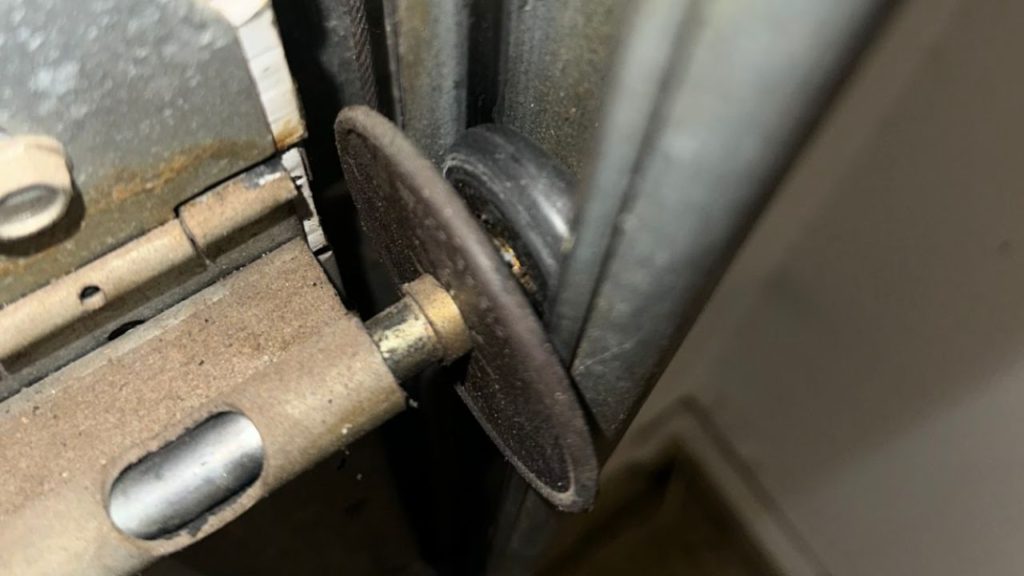Having a properly lubricated door is essential for your garage door to work properly. Proper lubrication will extend the life of your equipment by decreasing the wear and tear, which ultimately will save you money in the long run. In addition, your garage door will operate much quieter with proper lubrication.
Decreased Wear and Tear
Springs, rollers, and hinges each require proper lubrication in order to extend their life span. Each component is in use every time you open or close your door. Both the springs and hinges are made of metal that are usually soaked in oil during the manufacturing process and will dry out without being consistently lubricated.
Rollers with bearings will require lubrication, and if you do not have these currently, we recommend upgrading to either steel rollers with bearings or ideally nylon rollers with bearings to reduce the frequency of replacement.
Smooth Operation
Un-lubricated components can cause operational issues including loud noises and excess force being exerted on the motor. In addition to decreasing the wear and tear of your equipment, proper lubrication will ensure your door operates quietly and efficiently – reducing the likelihood you experience a lopsided door or broken component.
Signs it may be time to lubricate your components include a loud screeching noise when opening and closing, usually from the springs or hinges or a grinding noise coming from the rollers.
What Shouldn’t I Lubricate?
Really the only piece of equipment that is regularly in use that you SHOULD NOT lubricate would be the door tracks. If you lubricate the tracks themselves, the lubricant can cause a build up of debris as well as solidify if there is excess lubricant built up in one area.

Instead, just make sure to clean the tracks with a damp towel or rag and fully dry as well. We recommend cleaning the tracks when you lubricate the other components or on an as-needed basis (whichever comes sooner).
How Often Should I Lubricate?
At minimum, we require lubricating your components twice a year. Lubricating every 6 months is the industry standard, but don’t hesitate to bump that up to every 4 months (3 times a year) if you have older equipment or the door is getting increased use.
What Should I Use To Lubricate?
Before recommending the best lubricant, let’s go over what NOT to use. Likely you may assume WD-40 is the answer for lubrication, but in reality, you should never use this product on your door. WD-40 is actually meant for cleaning rust off metal and will strip the components of any lubrication, causing metal and metal contact. There are many garage door lubricants out there, but the best would be white lithium grease. Industry wide, this is the most recommended product for lubrication of garage equipment.
Overall, lubrication is essential in extending your equipment’s lifespan and having a quiet experience. Key takeaways include:
- Lubricate at least every 6 months with white lithium grease
- Never lubricate the door tracks. When you clean them, make sure to dry completely.
- Never use WD-40 on any components
Need lubrication assistance? Give us a call today!
